
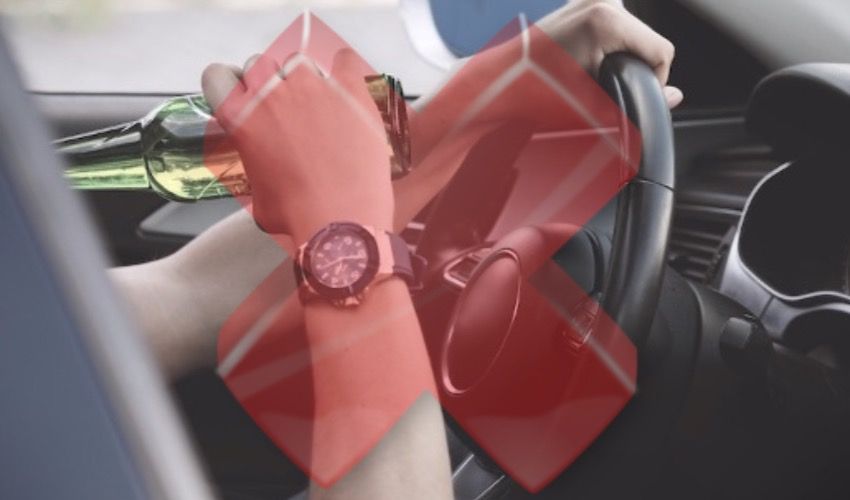
While Jersey laws allow islanders to drink a little and drive - the legal limit is under 35 microgrammes of alcohol in 100 mililitres of breath - other countries impose a complete ban.
For Advocate Olaf Blakeley, Jersey should follow the example of Brazil as a complete ban on drink driving makes the law simpler and avoid traps for the "unwary", as he explains...
"I have just returned from an extended holiday to Argentina and Brazil and - as I do on almost every holiday - I end up renting a car so I can travel when I like, and where I like, at my convenience. When you are driving in Buenos Aires, Salvador or Rio de Janeiro you need to know the local laws and how strict the authorities are in enforcing violations. This approach avoids (generally) amassing fines and other difficult situations.
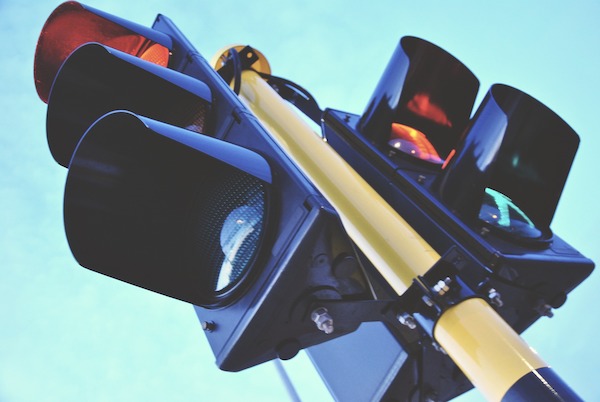
Pictured: In Buenos Aires, red traffic lights are simply ignored.
So, for instance, in Buenos Aires it appears the convention is to simply ignore red traffic lights and drive through them should you wish. While at first this is unfamiliar and causes you to hesitate, after a couple of days shooting red lights it becomes the norm (this is not the US principle of being able to turn on a red; it is going through the red no matter what you are intending to do when you clear it).
Another useful tip to know: no driving in flip-flops but bare feet is fine. As I travelled around I would throw the flip-flops into the back of the car or in the glove compartment and drive bare foot as police officers love stopping you and looking at your feet in the hope of bagging a fine for flip flop violation (flip flops in the foot well give the impression of a quick de-shoeing).
The most noticeable thing about driving in these cities is what appears to be a lack of a real application of rules. Yes, they have lanes marked on roads (sometimes as many as eight abreast) but no-one really pays much attention to them.
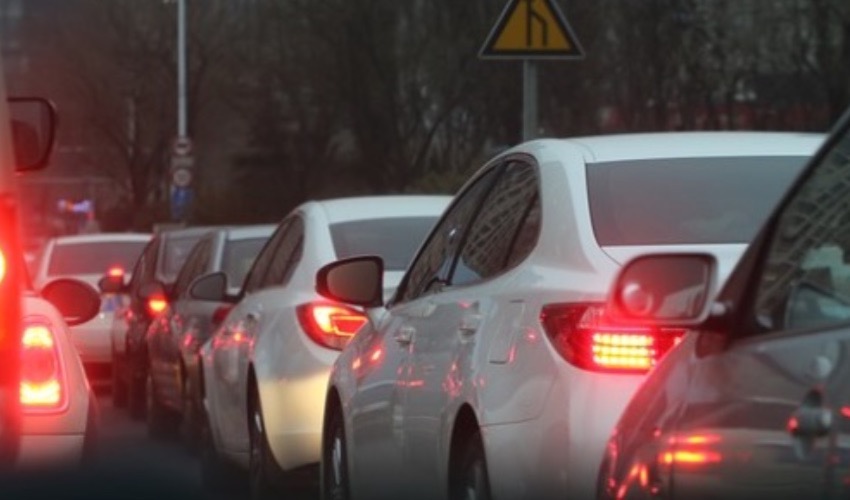
Pictured: There are lanes in South America, but not many drivers respect them.
If there is a bit of gap somewhere between cars you can just nudge the nose of your car in, effectively making your own traffic lane, and other drivers accept this as normal driving. If there are cars stopped at a junction because of oncoming traffic, you can merrily drive around the queue if you are ingenious enough to find a way round and just ‘pop’ yourself in front of everyone else; again, acceptable.
I drove a lot and did not witness one experience of even the mildest road rage. I actually think it’s the lack of the application of rules that stops the rage. Despite the craziness of it all, I prefer driving in foreign countries like these than in the UK. Despite the chaos, it’s far more relaxing and ‘easy’ because everyone is chilled about other drivers inventing their own rules as they go along.
However, notwithstanding the relaxation of rules, Brazil operates a total ban on alcohol and driving. Any alcohol in your system when behind the wheel and you commit an offence. There were many times after a full day of sightseeing I wanted to relax and watch a sunset with a beer but I knew the law, and so refrained and didn’t drink a drop. Yes, it was a bit frustrating but then I began to like the law.
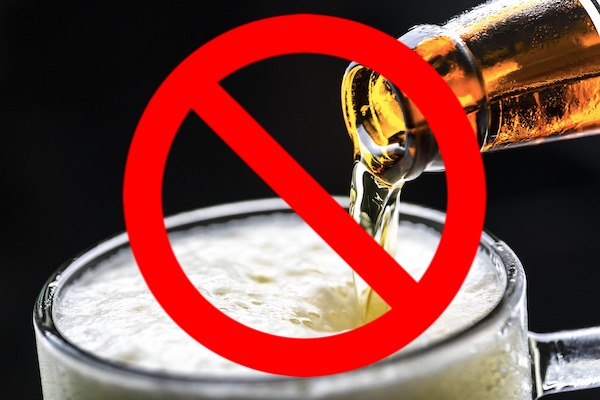
Pictured: Brazil operates a total ban on alcohol and driving.
In the island you commit an offence if you are in charge of vehicle at a time when you have more than 35 microgrammes of alcohol in 100 mililitres of breath (or 80mg or 107mg in a same sample of blood or urine respectively).
Why? Why should we have a limit allowing motorists to drive with a certain amount of alcohol, but not more? I sat watching the waves and the sun setting (while drinking coconut water) thinking about all of this and decided that allowing motorists to have some alcohol in their systems was in fact just a trap for the unwary.
In my opinion, permitting some alcohol just causes people to decide they can drink and then start trying to second guess how much alcohol would be present if stopped and breathalized.
We’ve all been party to conversations when you hear someone say, “but I’ve had a big meal so it will be fine,” or “I’ve had more than the limit but over a long period so most of it will be gone now.” While these statements can be true to a certain extent, I know from representing offenders and having been assisted by experts in the field, that the variables in respect of alcohol dissipation in humans and calculating the same are so numerous that it’s not really possible to make accurate assessments.
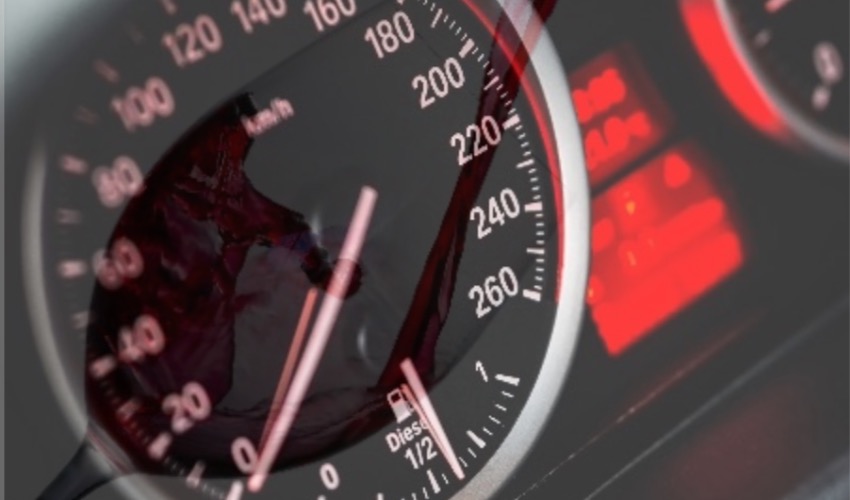
Pictured: According to Advocate Blakeley, "allowing motorists to have some alcohol in their systems was in fact just a trap for the unwary".
There is also the point that on drinking some, you are no longer the same person (in state) as you were before you drank alcohol. Perhaps you are more likely to say ‘yes’ to ‘just another’ drink.
The allowance enables motorists to go out for a meal and have a glass of wine but why should that allowance be made? Having thought about it for some time I am now of the opinion Jersey law should change and there should just be a zero policy.
If you drive, you must not have alcohol present in your system. No half measures (excuse the poor joke). I think it makes the law simpler and would probably reduce drink driving somewhat.
It won’t stop those who have masses of excessive alcohol, since they are just ignoring the law, but I think it would stop those who do not wish to break the law, but ‘chance it’ by drinking a bit and believing they are under the limit.
It would also have the effect of showing Jersey as a responsible jurisdiction in which sensible and easy measures are employed to reduce dangers and risks of injury."
This column appeared in the latest edition of Connect, which you can read in full by clicking here.
Comments
Comments on this story express the views of the commentator only, not Bailiwick Publishing. We are unable to guarantee the accuracy of any of those comments.